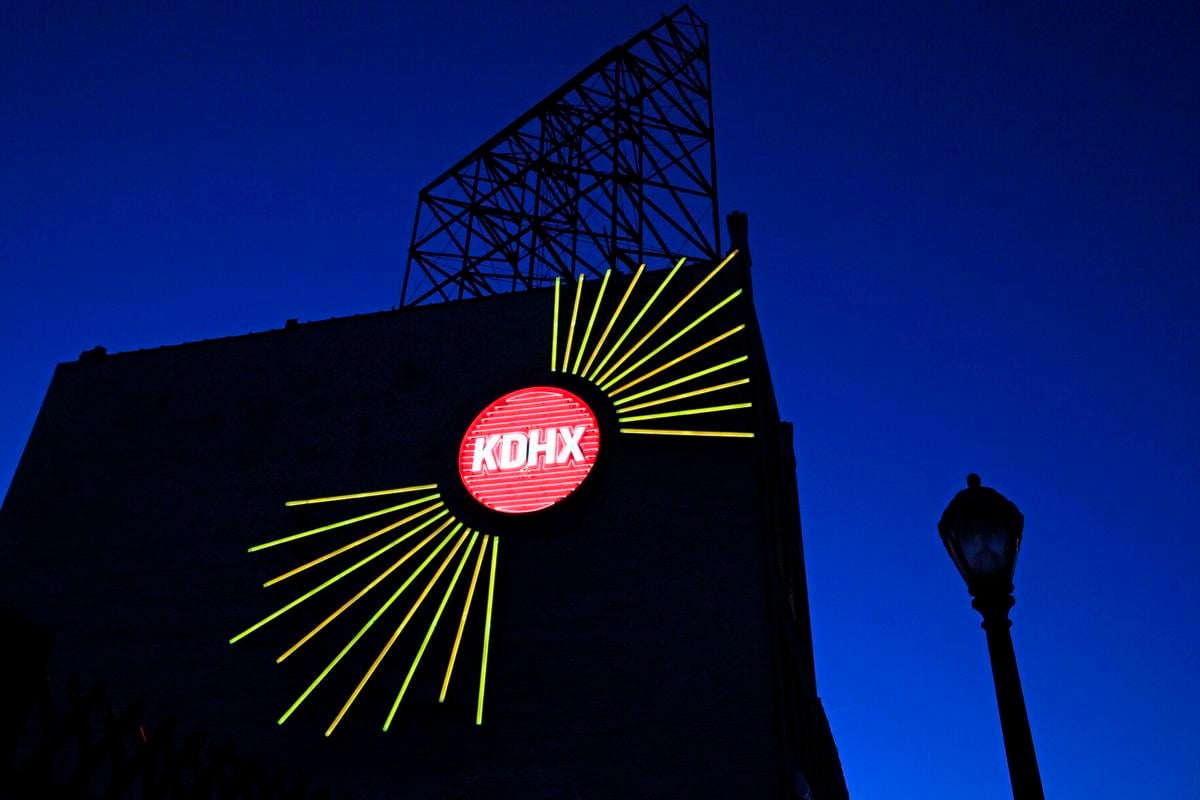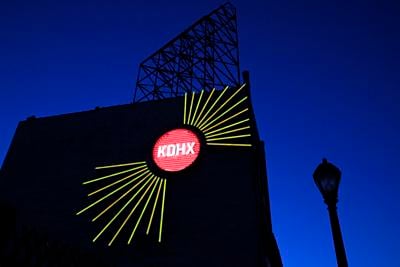“They put the last clean shirt on my brother, Bill” — The Animals
I called my former colleague Joan Bray on Tuesday and asked if she was feeling triumphant.
“I don’t know about triumphant,” she said, “but I woke up this morning with a serenity and calmness I haven’t felt in a long time.”
The day before, a federal bankruptcy court judge had ruled that the FM signal for community radio station KDHX could be sold to a Christian radio station.
A community radio station is a musical version of a traditional public radio station. Both rely heavily on pledge drives and underwriters. Traditional public radio is grander and more intellectual. It has serious news reporters.
KDHX used to have D.J. Wilson. He did a half-hour interview show every Monday night. It was called “Collateral Damage,” and like its creator, it was insightful, irreverent and seldom entirely serious. You could learn things by listening, but it wasn’t really news. Wilson and I were friends, and I was sometimes a guest.
People are also reading…
The KDHX studio was on Magnolia Street. The building was constructed in 1900 and was originally a bakery with lodging upstairs. It was far too small to be a radio station. People were always bumping into one another. That’s another thing about community radio. Lots of people. Almost everybody was a volunteer. Most disc jockeys had weekly shows. They played music you didn’t hear on other stations. None of the hits all of the time, Art Dwyer used to say. He had a blues show. He was also a founding member of the Soulard Blues Band.
Musicians were a big part of the community in community radio. Also, club owners. KDHX used to play a lot of local music, and the station would announce who was playing where.
The studio on Magnolia had the vibe of Alice’s Restaurant, but that vibe comes with a shelf life. Arlo Guthrie registered as a Republican in 2008. Few hippies noticed.
KDHX moved to Grand Center in 2013. The new place was bigger and plush.
There was always a natural tension between the directors and the staff at KDHX. It is difficult to exert authority over unpaid volunteers, especially when they’re hippies whose mantra is “Question Authority.”
Herding cats, right?
The whole thing exploded in February 2023 when the station fired a popular DJ who had been at the station since its beginnings. The reasons were murky. Many DJs supported their fired colleague. The station fired two of those, and the protests grew louder. Some DJs resigned in protest. Others were fired.
There then ensued a battle for the hearts, minds and wallets of the KDHX community. The hippies won. Donations dried up. Small businesses that had been underwriters quit underwriting.
We want a change in management, said the seemingly victorious hippies.
Instead, management filed for bankruptcy. Who can afford to buy a radio station these days? Two conservative Christian radio companies put in bids.
“What did they expect?” Bray asked me. “Boycotts have consequences.”
Yes, communication was a problem. Early in the battle, the directors held a meeting with the volunteers at Parker’s Table, a wine shop that had long been an underwriter. The directors chose to communicate through a facilitator. There was not much straight talk.
That was an unsettling thing about this fight. The directors positioned themselves to the left of the hippies. They said they wanted more voices from underserved communities.
The hippies were not without allies. Leonard Slatkin, conductor emeritus of the ��ѿ��ý Symphony Orchestra, issued a statement. “Please help keep KDHX alive and local by supporting the campaign to save community radio in ��ѿ��ý.”
Former mayor Vince Schoemehl tried to negotiate a deal. He is, or was, renowned as a deal-maker. He’d ask what you wanted, and then he’d listen really well, and try to figure out what you could live with. But there was no deal to be had.
At the last minute, another group emerged to save KDHX. Grown-ups, people with resumes. Their plan was to persuade the judge to put off the sale while they raised the money to buy the station. They were serious people with a serious plan, I thought.
The judge was not as impressed with their resumes as I was. She swatted down their proposal.
“Are you going to listen to Christian radio?” I asked Bray. I knew the answer. I asked just to be snarky.
“No,” she said.
She dismissed the idea that KDHX is dead. She said it could live on without a spot on the dial. A digital format, she said.
“You do know how to use an app, don’t you?” she asked.
“I stay away from that stuff,” I said.
Bray said she didn’t think this was such a big deal.
“You know me. I’m out there,” she said. “I’ve been in the middle of this thing. You know how often people come up and ask about this? Hardly ever.”
I have to admit I was surprised when the judge said she had received about 170 letters about this case. I would have guessed the number would be much higher.
Of course to me, this story has been about more than just the end of a magical kingdom. It’s about the end of an era. The hippies’ time has passed. Raise a glass to us. We had some good music.
Post-Dispatch photographers capture hundreds of images each week; here's a glimpse at the week of June 1, 2025. Video edited by Jenna Jones.












